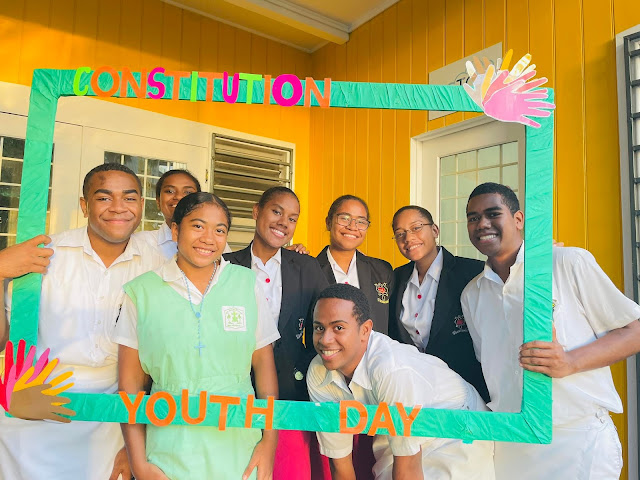Grace Konrote and Lati Shalom
With the writ for the Fiji National Elections 2022 expected any day soon (after the current Parliament has come to the end of its life – adjourned sine dine), we did a talanoa discussion with high school and University student leaders on Tuesday 6 September, 2022. It was noted that the Global Corruption Barometer 2021 had recorded relatively low figures for political corruption but that Fijian youths should remain vigilant to ensure that these figures did not rise but brought further down. The GCB 2021 Survey for Fiji recorded that 4 percent were offered bribes in exchange for votes; 17 percent said that members of Parliament are corrupt, and 12 percent said that local government reps are corrupt. The youth leaders were inspired by the GCB 2021 findings that 83 percent of the Fijian public had expressed that ordinary people can make a difference in the fight against corruption.
Why were young people not enthusiastic about
the upcoming 2022 Fiji National Elections? What can be done to overcome this
lethargy? How can youths be encouraged to take active political roles?
It was noted that in
the 2018 Fiji National Elections only 62.79 percent of youths aged 18 to 20 had
voted. The voting figure for those aged 21 to 30 was 60.4%. (In comparison, the
voter turnout for those aged 41 to 50 was 81.73 percent and 74.7 percent for
voters aged 31 to 40.) The FEO report noted that one of the 3 reasons for the
low voter turnout was ‘disinterest.’
“Yes I have registered to vote but I am not sure if I’ll
vote. I am not fired up by the candidates announced by parties. They look grog-doped and seem to be looking for work,” one Year 13 student said. “We need to
see younger candidates.”
“We haven’t seen their manifestos. What are they offering
young people in terms of jobs?” another Uni student asked.
A Year 12 girl from a prominent girl’s school piped up,
“The opposition parties seem to be fighting amongst themselves.”
Her friend added, “They should unite and work together if
they want to form the next government.”
Two students spoke up in support of the assistance provided
by the Fiji First Government.
“But isn’t that a form of election bribery?” one male Year
13 student asked
“The writ of elections has not been announced yet.
Campaigning has not yet started. This is Government assistance, not bribes,”
one protested.
“But won’t the debt levels rise with all those handouts?
Someone will end up paying for it in future,” the Year 13 boy persisted.
“Yeah, tell me about it,” another student said trying not
to sound cynical while the rest laughed.
Do your parents discuss politics, elections,
democracy with you?
All youths (with the exception of one) said that there were
no discussions on these issues with their parents.
Yes, they had heard their parents griping about the
economy, media freedom, health issues, politics and current affairs but the
impression they got was that these discussions were only meant for the 4 walls
of their homes. It was not meant to be aired outside their homes.
It seemed that discussions of Government political leaders
was like talking about Lord Voldemort (the villain in the Harry Potter novels)–
most parents dared not utter the names of the Honourable PM or AG in public (in
a critical way).
“The walls have ears and what goes around comes around,” a
student quipped trying to be funny.
Two students whose parents worked in senior government
positions were emphatic that their parents would vote FijiFirst as they had
done a lot of great things.
“But isn’t voting a secret thing that only the voter and
God would know?’ another student asked. “Will they really vote for FF?”
The two students protested that they could not speak for
God but were adamant that their parents would vote for the ruling party.
How can we change the mindset of youths and encourage
them to vote?
It was suggested that manifestos should be presented with
good illustrations (rather than the format of long technical essays.)
Promises should be costed and explanations should be
provided on how it will be funded.
Party leaders and candidates should not mumble their words
and speak clearly.
The date of the elections should be known 6 months in
advance rather than being announced abruptly.
Free transport should be provided on election day.
Messages on encouraging young people to vote should also be
done though films, songs, art and other creative ways.
Youths4Integrity is supported by Transparency
International and will be organising more talanoa sessions and looking at
creative ways of encouraging more young Fijians to vote.





